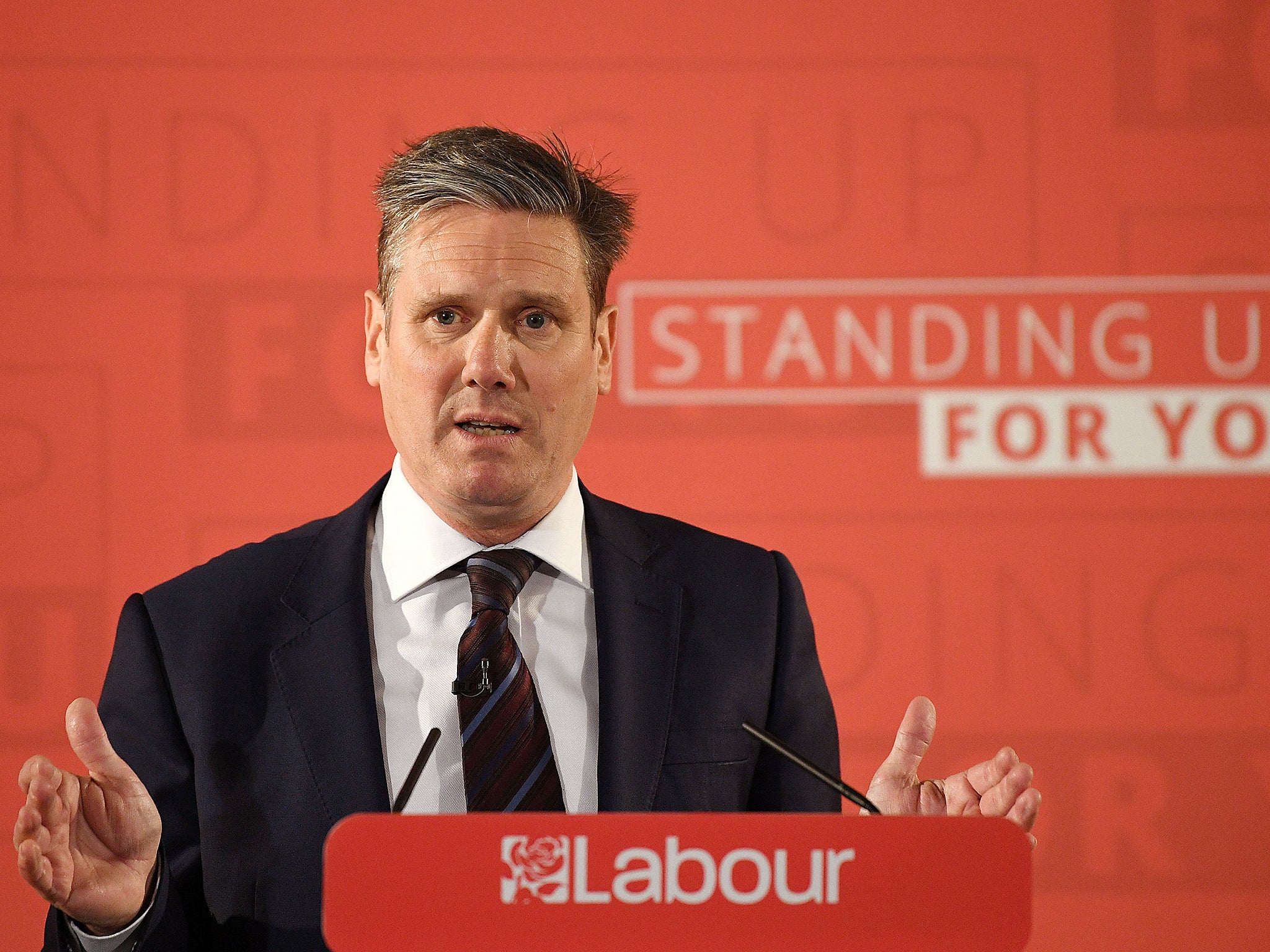Michel Barnier has no interest in delivering a Labour or a Conservative Brexit
Each British political party will obviously have a different shape to their idealised new treaty, but that does not mean that Michel Barnier and his team are obliged to grant it. Indeed, all the signs from the European Union are that they will not

What would a “Labour Brexit” look like? Would it differ from a “Tory Brexit”? Is it up to either of them anyway?
For all the dizzyingly different signals emanating from Labour since the general election – moving from a unequivocal Jeremy Corbyn commitment to leave the single market and customs union towards a virtually unlimited option of staying in both – there has been some consistency in the Labour message. The party is in favour of “soft Brexit”; it accepts that free movement, as it has been known, may no longer be possible in the new world; it sincerely wants to put jobs and the economy first; and it seems rather uninterested in theoretical arguments about parliamentary sovereignty and the status of the Court of Justice of the European Union.
Still, Sir Keir Starmer’s short keynote speech to his party conference was a deeply unsatisfactory affair. True, it represented a far better set of messages than thought possible before he and like-minded colleagues apparently prevailed upon Mr Corbyn to soften his stance on Brexit over the summer. There are many nuances in the Starmer position – but that is the problem. He appears to be in favour of staying in “a” customs union – rather than, presumably, “the” customs union as we’ve known it. That suggests a customs arrangement between the EU and UK that is “bespoke” and distinct from the one that governs the other 27 current members of the EU.
Indeed, “a form of customs union with the EU is a possible end destination for Labour” says Sir Keir. On the single market, he told us this: “We are also flexible as to whether the benefits of the single market are best retained by negotiating a new single market relationship or by working up from a bespoke trade deal. No rash, ideological red lines preventing a sensible deal.”
Sensible and pragmatic indeed, as we’ve come to expect from the sensible and pragmatic Sir Keir, the great hope for pro-Europeans and social democrats in his party. And yet these sensible and practical Labour proposals, shorn of the ideology that has distorted and infected so much of the Conservatives’ approach, may be loftily and summarily rejected by the EU as readily as those put forward by David Davis or Theresa May.
Labour, it is plain, wants to have its cake and eat it just as anxiously as the Conservatives. Like the Tories, though, Labour will find itself in an astonishingly feeble negotiating position, and the EU 27 are under little obligation or leverage to grant Britain either a “Labour” or a “Conservative” Brexit – if it means picking and choosing which parts of the EU’s arrangements suits Britain.
Each British political party will obviously have a different shape to their idealised new treaty, but that does not mean that Michel Barnier and his team are obliged to grant it to them. Indeed, all the signs from the European Union are that they will not. None of the elections in Europe this year, including Angela Merkel’s renewed mandate, has materially altered the balance of power or the balance of the arguments about the EU’s future direction or attitude to Brexit. An emboldened President of the Commission, Jean-Claude Juncker, declared as much the other day.
For Sir Keir and Labour it is unfair to expect them to undertake a short of shadow negotiation exercise when they are in no position to do so. Yet it is fair to ask them what is their answer to the Northern Irish border question; what financial principles they would apply to the so-called divorce bill; how the UK could negotiate trade deals with other powers if it were still in “a” customs union with the EU; and how we stay in the single market while preventing exploitive employers from undercutting wages, which is to say arbitrarily restricting the free movement of labour.
It’s also right to ask Labour why the Europeans would allow us to have special customs union deal. More than anything, Sir Keir failed to warn the British people that, whatever adjective is attached to it, Brexit will be painful and necessarily hit jobs, investment, wages and the public finances. Only Sir Vince Cable of the Liberal Democrats, barely noticed these days, is willing to do that.
At the moment the Labour Party is, for a change, not in an open civil war and is leaving that particular conference season ritual to their Conservative rivals. Yet Labour is also split on Brexit, though along different fault lines and in different proportions to the Tories, and it is equally hopelessly optimistic about what the EU will grant the British in terms of a deal.
As Sir Keir said, people’s jobs are at stake. People’s mortgages are at stake. People’s futures are at stake, but it is far from clear that Labour yet have the answers. Sooner or later they will need to put the issue of the terms of Brexit again to the British people, whether it is Sir Keir or Mr Davis who signs off on the deal. If there is one.
Join our commenting forum
Join thought-provoking conversations, follow other Independent readers and see their replies
Comments